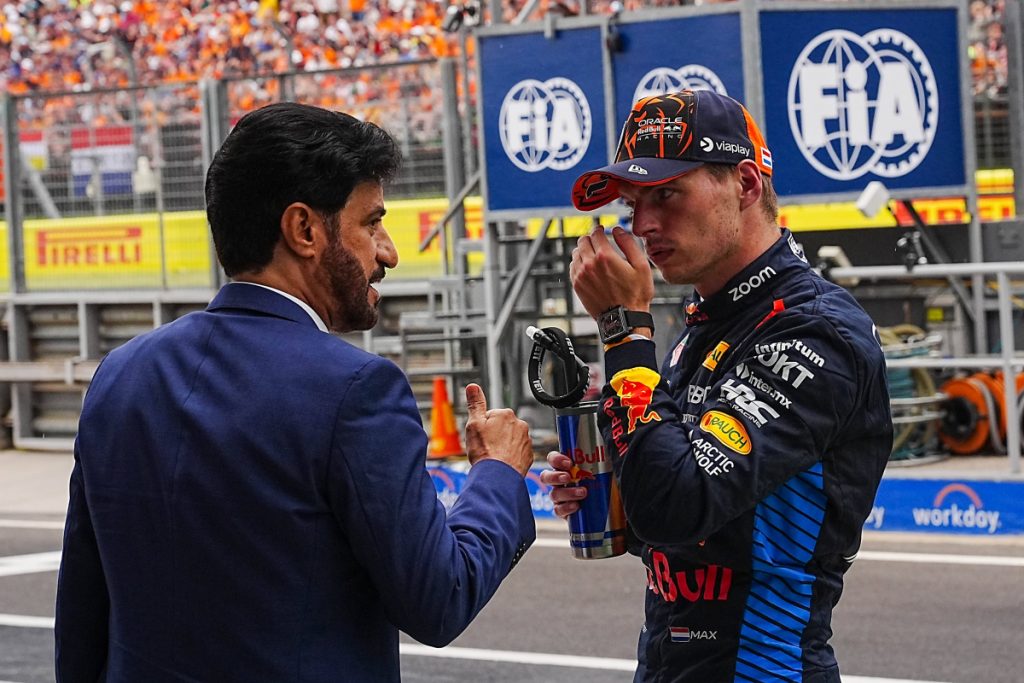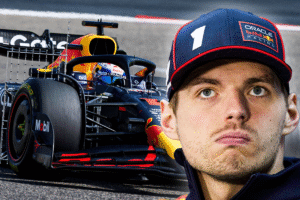Breaking news:F1 drivers facing RACE BANS as new FIA…read more

F1 drivers facing RACE BANS as new FIA…read more
The FIA (Fédération Internationale de l’Automobile), Formula 1’s governing body, has introduced a new set of penalty guidelines for driver misconduct, signaling a significant shift in how offenders will be treated in the future. These changes, which will take effect from the 2025 season, include the possibility of race bans, point deductions, and hefty fines for repeat offenders, marking a stricter stance on driver behavior both on and off the track.
This updated version of the International Sporting Code (ISC) was released ahead of the 2025 season, which promises to bring more stringent consequences for F1 drivers who repeatedly break the rules. The new framework is a response to rising concerns about misconduct, such as drivers making inappropriate comments or failing to comply with FIA protocols. One of the most talked-about incidents in recent years was Max Verstappen’s punishment for swearing during a press conference at the 2023 Singapore Grand Prix. While the penalty at the time involved a community service-style punishment, it sparked a debate about whether such measures were sufficient. The GPDA (Grand Prix Drivers’ Association) publicly criticized the FIA’s response, pushing the organization to reconsider how it dealt with driver misconduct.
In the new set of guidelines, drivers who commit the same offence three times within a two-year period will face progressively severe penalties. The severity of the punishment depends on the nature of the violation. For example, the first infraction of a listed offence could result in a fine of €10,000, or €15,000 if a driver fails to comply with FIA rules regarding participation in official ceremonies during a championship event. These infractions could include instances such as swearing, political or personal statements that breach the neutrality policy, or failure to follow event protocols.
If a driver commits the same offence a second time, the penalty escalates. Fines would increase to €20,000 or €30,000, depending on the severity, and could also include a one-month suspension or a public apology, particularly if the violation involves making political, religious, or personal statements that contradict the FIA’s neutrality policy. This marks a more aggressive approach to ensuring that drivers adhere to the standards of behavior expected in Formula 1.
The third and most serious infraction would see even heavier penalties. Fines can reach up to €45,000, and in addition to fines, a driver could be required to issue a public apology, retract their statements, or face a one-month suspension. In the case of severe misconduct, such as consistently failing to follow official ceremony rules, the FIA may impose an even more drastic sanction: a race ban. For example, a driver who continually fails to comply with event protocols could be suspended from the following race, as they would be denied access to the Reserved Area(s) of the event, effectively preventing their participation in that race.
The new guidelines are designed to ensure that penalties are fair, transparent, and proportionate to the nature of the infraction. The guidelines state that race stewards have the discretion to decide what penalty should be enforced, taking into account any mitigating or aggravating circumstances. This flexibility is meant to allow stewards to consider the specific context of each violation, including factors such as the location of the event and the nature of the driver’s actions. For example, a driver’s conduct during a major event, like the Monaco Grand Prix, might be treated differently than during a less high-profile race, depending on the circumstances surrounding the infraction.
While these new regulations have been implemented to promote accountability, there has been some pushback from various drivers and stakeholders in the sport. Many believe that these rules might be too harsh, especially considering the nature of Formula 1, where emotions can sometimes run high, and incidents can occur in the heat of the moment. The introduction of race bans, in particular, has raised concerns about whether such measures could unduly impact a driver’s championship prospects.
Despite the criticism, the FIA remains firm on its stance, arguing that the new guidelines are necessary to maintain the integrity of the sport and ensure that all drivers abide by the same standards. The updated code is part of a broader effort by the FIA to enforce more discipline across all levels of motorsport, aiming to foster a culture of respect, professionalism, and sportsmanship in F1.
In conclusion, the introduction of these tougher penalties is a clear signal from the FIA that misconduct will no longer be tolerated. With race bans, fines, and championship point deductions now on the table, drivers will need to be more mindful of their actions both on and off the track in the coming seasons. Whether these changes will be effective in curbing unsportsmanlike behavior remains to be seen, but they certainly represent a new chapter in Formula 1’s approach to maintaining order and respect within the sport.






